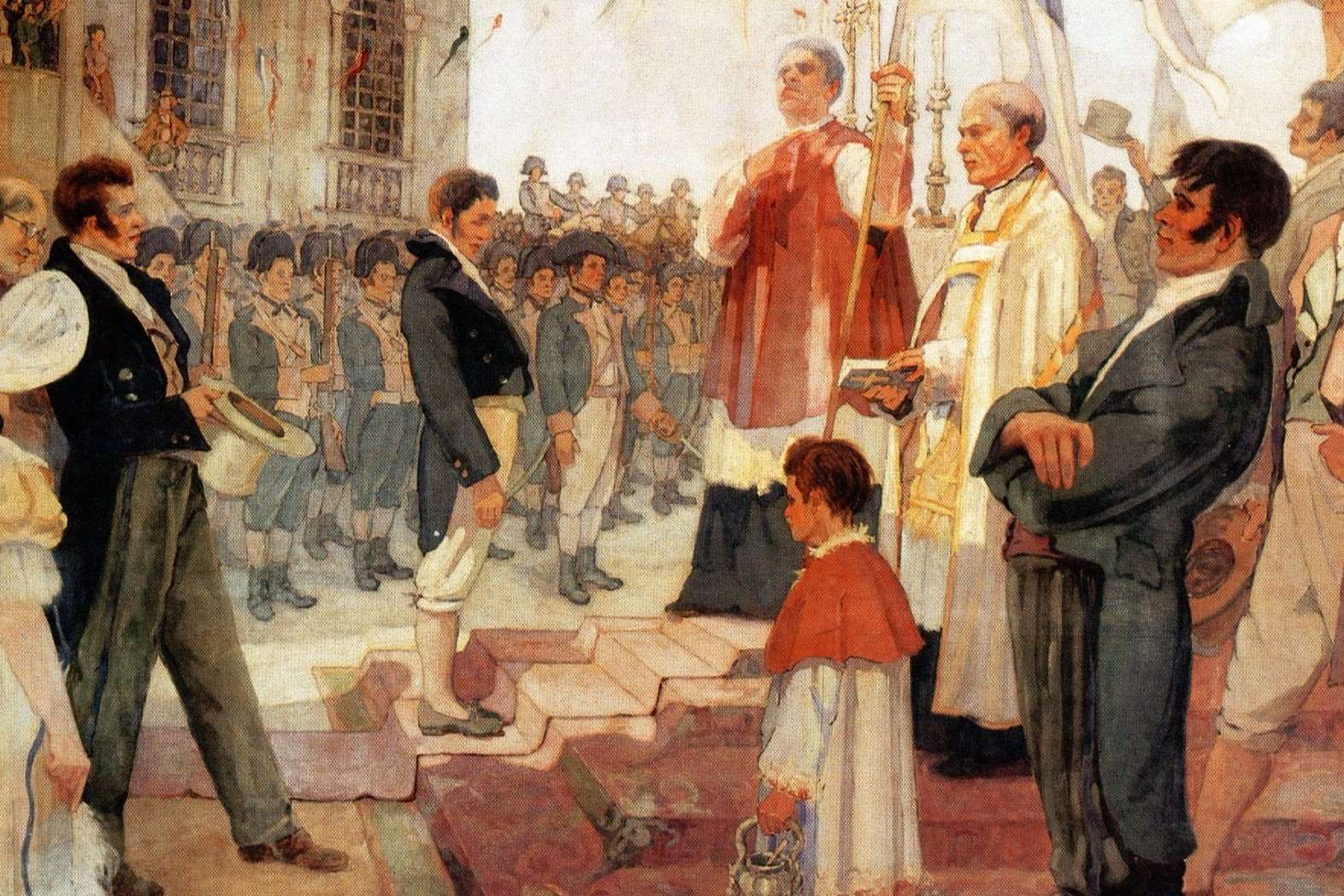
The Pernambucan Revolt of 1817 stands as a significant chapter in Brazilian history. This uprising, driven by a desire for independence and fueled by economic hardship, showcased the resilience and determination of the people of Pernambuco. But what exactly sparked this revolt? The combination of oppressive Portuguese rule, heavy taxation, and economic disparity created a powder keg ready to explode. Leaders from various social strata united with a common goal: to break free from colonial chains. Though the revolt was ultimately quashed, its impact resonated, planting seeds for future independence movements. Dive into these 30 intriguing facts to understand the full scope of this pivotal event.
Key Takeaways:
- The Pernambucan Revolt was a major uprising in Brazil driven by economic hardship, Enlightenment ideas, and a desire for independence from Portuguese colonial rule. It inspired future movements for Brazilian independence.
- This revolt in 1817 had a lasting impact on Brazilian society, inspiring literature and art, fostering regional identity, and contributing to the broader narrative of Brazilian nationalism. It remains a significant chapter in Brazil's struggle for independence.
What Was the Pernambucan Revolt?
The Pernambucan Revolt was a significant event in Brazilian history. It took place in 1817 in the northeastern province of Pernambuco. This uprising was driven by a mix of political, economic, and social factors.
- The revolt was primarily a reaction against the Portuguese colonial rule.
- Economic hardship and heavy taxation fueled discontent among the population.
- The influence of the Enlightenment and the American and French revolutions inspired the rebels.
- Pernambuco was one of the wealthiest provinces, making it a crucial area for the Portuguese crown.
- The revolt aimed to establish an independent republic in Pernambuco.
Key Figures in the Pernambucan Revolt
Several notable individuals played crucial roles in the Pernambucan Revolt. These leaders came from various backgrounds, including military, clergy, and intellectuals.
- Domingos José Martins, a merchant and military officer, was a prominent leader.
- Frei Caneca, a Carmelite friar, became a key ideological figure.
- José de Barros Lima, known as "Leão Coroado," was a fearless military leader.
- Antônio Carlos de Andrada e Silva, a lawyer and politician, supported the revolt.
- The revolt also saw the participation of many local artisans and farmers.
The Course of the Revolt
The Pernambucan Revolt unfolded over several months, marked by significant battles and strategic maneuvers.
- The revolt began on March 6, 1817, with the capture of Recife, the provincial capital.
- Rebels quickly established a provisional government, declaring independence from Portugal.
- The provisional government sought international recognition, sending envoys to the United States and other countries.
- The Portuguese crown responded with a military expedition to crush the rebellion.
- Key battles included the Siege of Recife and the Battle of Casa Forte.
The Aftermath of the Pernambucan Revolt
The Pernambucan Revolt had lasting impacts on Brazilian society and its path to independence.
- The revolt was ultimately suppressed by Portuguese forces in May 1817.
- Many leaders were captured and executed, including Domingos José Martins and Frei Caneca.
- The revolt highlighted the growing desire for independence among Brazilians.
- It exposed the weaknesses of Portuguese colonial rule in Brazil.
- The revolt inspired future uprisings and movements for Brazilian independence.
Cultural and Social Impact
The Pernambucan Revolt also had significant cultural and social repercussions. It influenced literature, art, and the collective memory of the Brazilian people.
- The revolt became a symbol of resistance and the fight for freedom.
- It inspired numerous works of literature, including poems and plays.
- The memory of the revolt is commemorated in Pernambuco with monuments and annual events.
- The revolt fostered a sense of regional identity and pride among Pernambucans.
- It contributed to the broader narrative of Brazilian nationalism.
Legacy of the Pernambucan Revolt
The Pernambucan Revolt left a lasting legacy in Brazilian history. Its influence can be seen in various aspects of modern Brazil.
- The revolt is considered a precursor to Brazil's independence, achieved in 1822.
- It demonstrated the potential for successful uprisings against colonial powers.
- The revolt's leaders are remembered as national heroes in Brazil.
- The ideals of the revolt, such as liberty and self-governance, continue to resonate in Brazilian society.
- The Pernambucan Revolt remains a significant chapter in the story of Brazil's struggle for independence.
The Pernambucan Revolt's Legacy
The Pernambucan Revolt of 1817 left a lasting mark on Brazil's history. This uprising wasn't just a fleeting moment; it sparked a wave of change. The fight for independence and democracy in Pernambuco inspired future movements across the country. Though the revolt was crushed, the ideas of freedom and self-governance took root. The bravery of those involved showed the power of collective action against oppression. Today, the revolt is remembered as a pivotal event that contributed to Brazil's eventual independence in 1822. Learning about the Pernambucan Revolt helps us appreciate the struggles and sacrifices made for the freedoms enjoyed today. It serves as a reminder that the quest for justice and equality is ongoing. Understanding this historical event enriches our knowledge of Brazil's path to becoming a nation.
Frequently Asked Questions
Was this page helpful?
Our commitment to delivering trustworthy and engaging content is at the heart of what we do. Each fact on our site is contributed by real users like you, bringing a wealth of diverse insights and information. To ensure the highest standards of accuracy and reliability, our dedicated editors meticulously review each submission. This process guarantees that the facts we share are not only fascinating but also credible. Trust in our commitment to quality and authenticity as you explore and learn with us.
